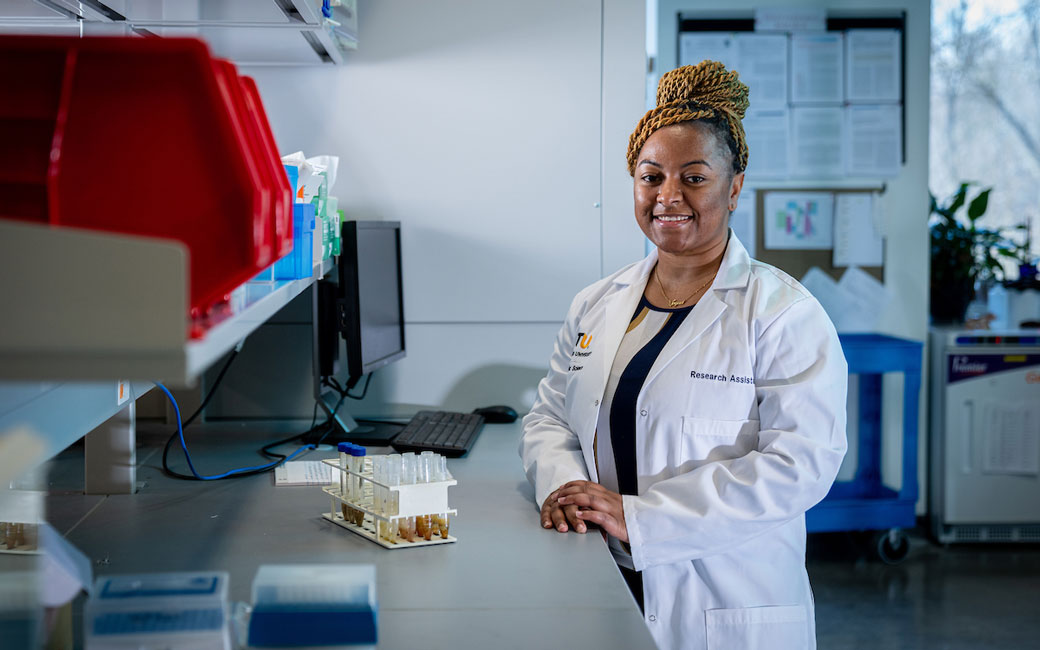Returning to school to shape her future
Nequa Griffin came to Towson University’s forensic science master’s program to help her career
By Kyle Hobstetter on June 16, 2023

In 2017, Nequa Griffin received her bachelor’s degree in forensic science and was ready to join the workforce. But as she was searching for a job, she saw that most employers in the field were looking for applicants with a master’s degree.
Griffin took a leap and headed back to school in 2022, joining Towson University’s forensic science master’s program. It is accredited by the Forensic Science Education Programs Accreditation Commission.
The program faculty made her feel at home immediately.
“I was nervous. I haven't been in school in five years,” Griffin says. “I spent five years not having to study or take a test. I didn’t have to focus on learning. But I feel like the professors here do a good job of making themselves available and are eager to make sure you get the help you need.”
One who has already had an influence is Ellen Hondrogiannis. During her first term, Griffin took a class with the chemistry professor, who was so impressed with Griffin’s work she offered Griffin a student assistantship on one of her research projects.
Extractions are a key forensic science skill, and she’s already getting experience extracting CBD from over-the-counter products such as face cream and lip balm through her work with Hondrogiannis.
And while she knew she wanted to get involved with on-campus research, Griffin never expected the opportunity in only her second term. She now spends five hours a day in the labs of Towson University’s Science Complex, which she says has only strengthened her desire to enter the profession.
“This gives me a very good insight of what I’m going to be doing in the real world,” Griffin says. “That’s what I like about the program: It’s hands on. It’s our professors’ goal to get you to work independently, while still giving you guidance, which is really important when applying for jobs.
“I’m doing real research in a real lab, which I feel will make me a stronger candidate than those who are just doing research in a classroom.”
The forensic science master’s program has a 92% job placement rate. Alumni across the Mid-Atlantic work as crime scene investigators for police departments, specialists in research labs and hospitals and subject matter experts for the National Institutes of Health.
“That’s another reason I chose Towson University, because they have such a strong job placement rate,” Griffin says. “This program has offered a lot of opportunities I’m not going to have elsewhere. Once I graduate, I know I’m going to have the knowledge and background to be successful.”